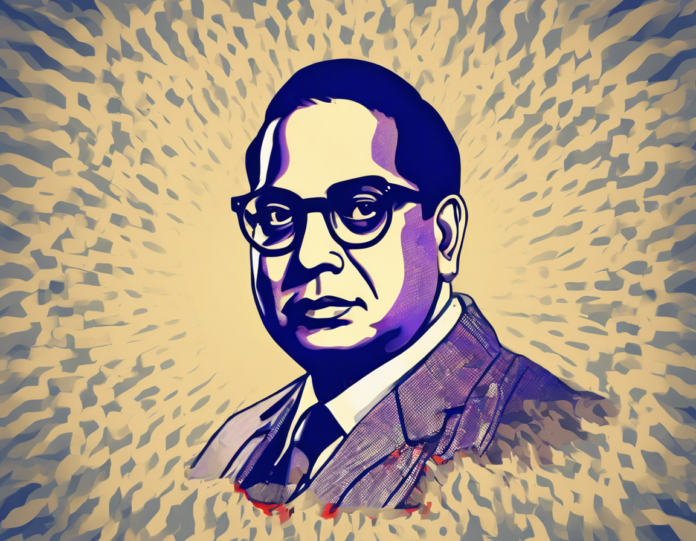Dr. Bhimrao Ramji Ambedkar, popularly known as Babasaheb Ambedkar, was a prominent figure in India’s struggle for social equality and justice. As an economist, jurist, and social reformer, he dedicated his life to fighting against discrimination and oppression based on caste. His ideals and contributions have left a lasting impact on Indian society, shaping the course of history and inspiring generations to come.
Early Life and Education
Born on April 14, 1891, in the town of Mhow in Madhya Pradesh, Babasaheb Ambedkar belonged to the Dalit community, formerly known as untouchables. Despite facing severe caste-based discrimination and obstacles to education, he excelled in his studies and went on to complete multiple degrees, including a PhD in Economics from the University of London.
Role in Drafting the Indian Constitution
One of Babasaheb Ambedkar’s most significant contributions was his pivotal role in drafting the Indian Constitution. As the Chairman of the Drafting Committee, he played a crucial part in shaping the fundamental rights, principles, and framework of independent India. His emphasis on equality, justice, and the rights of marginalized communities is reflected in the Constitution’s provisions, ensuring a more inclusive and democratic society.
Advocacy for Dalit Rights
Throughout his life, Babasaheb Ambedkar championed the rights of Dalits and other marginalized groups. He fought against caste-based discrimination and inequality, advocating for social reforms and affirmative action to uplift the oppressed communities. His efforts paved the way for reservations in educational institutions and government jobs for Scheduled Castes and Scheduled Tribes, promoting social mobility and representation.
Emphasis on Education and Empowerment
Babasaheb Ambedkar believed that education was key to empowering the marginalized and breaking the cycle of oppression. He emphasized the importance of knowledge and critical thinking in challenging societal norms and achieving social transformation. His efforts led to the establishment of educational institutions like the Maharashtra Mandal and the People’s Education Society, providing opportunities for the education and advancement of Dalits.
Legacy and Impact
The legacy of Babasaheb Ambedkar continues to resonate in modern India and beyond. His teachings on social justice, equality, and human rights have inspired movements for social reform and political activism. His vision of a just and equitable society remains a guiding principle for those advocating for the rights of the marginalized and oppressed.
Frequently Asked Questions (FAQs)
1. What were Babasaheb Ambedkar’s major contributions to Indian society?
Babasaheb Ambedkar made significant contributions in various fields, including law, economics, and social reform. His role in drafting the Indian Constitution, advocating for Dalit rights, and promoting education and empowerment are among his most notable achievements.
2. How did Babasaheb Ambedkar’s background influence his advocacy for social justice?
As a member of the Dalit community, Babasaheb Ambedkar experienced firsthand the discrimination and oppression faced by marginalized groups. This upbringing fueled his passion for equality and social reform, shaping his lifelong commitment to fighting against caste-based injustices.
3. What is the significance of Babasaheb Ambedkar’s role in drafting the Indian Constitution?
Babasaheb Ambedkar’s role in drafting the Indian Constitution was crucial in ensuring that the principles of equality, justice, and individual rights were enshrined in the foundational document of independent India. His contributions laid the groundwork for a more inclusive and democratic society.
4. How did Babasaheb Ambedkar promote education among marginalized communities?
Babasaheb Ambedkar recognized the transformative power of education in empowering the marginalized. He established educational institutions and advocated for affirmative action in access to education, creating opportunities for Dalits and other oppressed groups to break barriers and pursue academic excellence.
5. What is the lasting impact of Babasaheb Ambedkar’s teachings on social justice?
The teachings of Babasaheb Ambedkar continue to inspire movements for social justice and empowerment. His emphasis on equality, human rights, and dignity serves as a guiding light for those working towards creating a more just and inclusive society, both in India and around the world.












